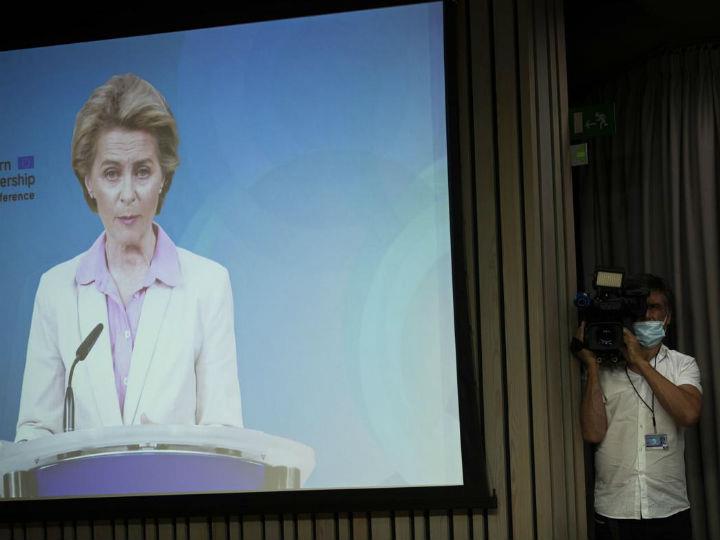by Jorge Valero
EU leaders will discuss for the first time on Friday (19 June) the €750 billion recovery fund proposed by the Commission to overcome the coronavirus crisis. But in order to access EU aid, member states will have to bring down their ballooning public debt, an EU official explained.
The 27 heads of state and government will start their videoconference at 10 am and attempt to narrow their differences over the recovery fund and the overall EU budget for 2021-2027.
Expectations are very low. A senior EU official said that not going backwards would already be a success, noting as a positive signal that no member state rejected “immediately” the European Commission’s ambitious proposal.
The official admitted that there is no majority in favour of the Commission proposal at this stage and that the discussion will be “difficult”.
The Commission proposed in late May €500 billion in non-refundable grants and €250 billion in ‘soft’ loans to overcome the coronavirus crisis.
The recovery fund, named ‘Next Generation EU’, will be part of the €1 trillion seven-year EU budget, the multi-annual financial framework (MFF).
One of the thorny issues among the national capitals is the conditionality to access the money. While hard-hit countries such as Italy and Spain want a minimum conditionality, others including the ‘Frugal Four” (Netherlands, Austria, Sweden and Denmark) want stricter adjustments and reforms to unlock the funds.
An EU official said on Thursday that countries will have to put forward not only reforms to modernise their economies but also “fiscal adjustments” to ensure that their debt levels are sustainable.
Public debt is expected to skyrocket in the EU this year, reaching 196% of its GDP in Greece, 159% in Italy, 131% in Portugal, 116% in France and 115% in Spain.
“We will look at fiscal adjustments, of course,” the same official added, highlighting their importance for bolstering the resilience of national economies.
The national governments and the Commission will agree jointly on the investment and reform programmes to access the funds, including the fiscal adjustments.
Budget cuts and tax increases will face a political storm in southern countries like Italy, Spain or Greece, as memories of the austerity period during the past crisis are still vivid.
EU officials, however, added that the Commission would not make the same “mistakes” of ten years ago, when it imposed drastic fiscal adjustments to balance the public accounts in the aftermath of the crisis, triggering a new downturn in 2012.
The process will be more gradual and will take into account the member states’ high deficit and debt levels in the aftermath of the pandemic, and only once the economic situation stabilises.
As the EU economy is expected to grow again by 6.1% next year, the current suspension of the Stability and Growth Pact, the EU’s fiscal rules, would be no longer granted.
Obstacles
In addition to the conditionality to unlock the recovery funds, member states continue to disagree over the size, the proportion of grants versus loans, and the criteria to allocate the money among the member states.
Some member states also oppose the introduction of new levies to repay the €750 billion that the EU will borrow from the markets.
These new EU taxes include a levy on single-use plastics, a digital tax or a tax on multinationals.
The European Parliament, however, warned that it would not give its consent to the package unless there is clarity on the new own resources.
Despite the complexity, a national diplomat noted that the preparatory discussions among EU ambassadors and ministers over the past weeks were “constructive” and the atmosphere is better than in February when EU leaders failed to reach an agreement on the EU’s seven-year budget.
In addition, member states understand the “sense of urgency” and the exceptional situation Europe is facing, added a senior EU official, as a proper economic response is needed to cope with the deepest recession in the EU history.
Deal in July?
EU institutions and member states expect to reach a political agreement in July.
To that end, and following Friday’s video-summit, European Council President Charles Michel will maintain bilateral contacts with the capitals over the coming days and will put forward a negotiating box.
That new proposal will be the basis for an in-person EU summit in early July in Brussels. A second summit is not excluded, given the immense divergences among the national positions and the unanimity needed among the 27.
Once the political agreement is secured, the European Parliament and national parliaments will need to give their blessing to the accord, so the money can start flowing on 1 January.
*first published in: www.euractiv.com




 By: N. Peter Kramer
By: N. Peter Kramer
